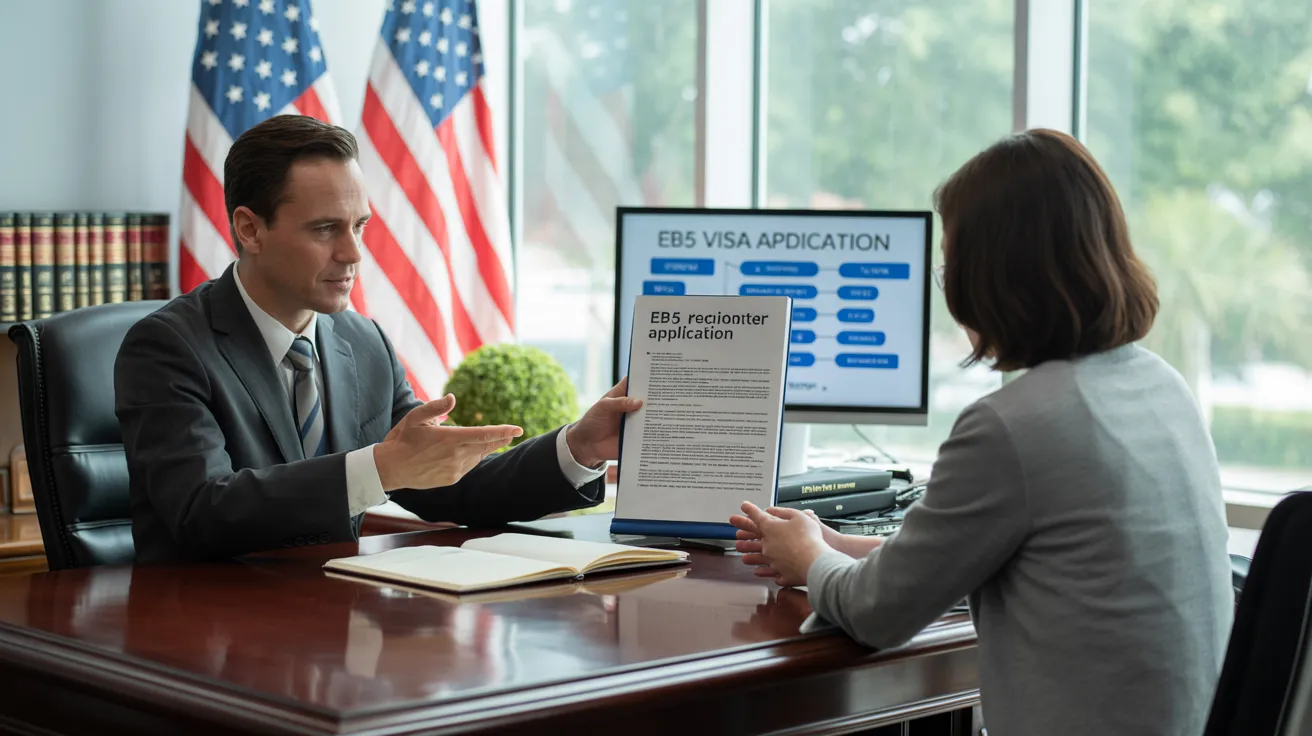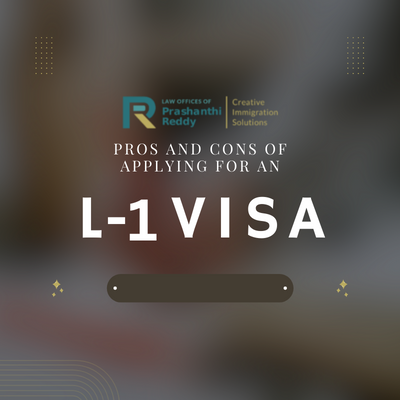Everything about L1 Visa
Table of ContentsL1 Visa - Truths5 Easy Facts About L1 Visa ExplainedThe Ultimate Guide To L1 VisaL1 Visa Can Be Fun For Anyone5 Easy Facts About L1 Visa DescribedThe Buzz on L1 Visa
Readily Available from ProQuest Dissertations & Theses Global; Social Scientific Research Premium Collection. DHS Workplace of the Inspector General. Fetched 2023-03-26.

U.S. Department of State. Obtained 2023-02-08. Tamen, Joan Fleischer (August 10, 2013).
Some Known Factual Statements About L1 Visa
In order to be qualified for the L-1 visa, the foreign firm abroad where the Recipient was utilized and the united state business must have a certifying partnership at the time of the transfer. The different kinds of qualifying relationships are: 1. Parent-Subsidiary: The Parent means a company, corporation, or other lawful entity which has subsidiaries that it owns and regulates."Subsidiary" implies a company, corporation, or various other lawful entity of which a parent possesses, directly or indirectly, more than 50% of the entity, OR possesses less than 50% yet has administration control of the entity.
Instance 1: Firm A is included in France and utilizes the Recipient. Firm B is integrated in the united state and intends to request the Recipient. Company A has 100% of the shares of Business B.Company A is the Moms And Dad and Firm B is a subsidiary. There is a certifying connection in between the 2 companies and Company B ought to be able to sponsor the Beneficiary.
Example 2: Company A is included in the united state and wishes to petition the Beneficiary. Business B is integrated in Indonesia and uses the Recipient. Company A has 40% of Firm B. The remaining 60% is possessed and managed by Company C, which has no relationship to Business A.Since Business A and B do not have a parent-subsidiary partnership, Company A can not sponsor the Beneficiary for L-1.
Firm A possesses 40% of Business B. The remaining 60% is owned by Business C, which has no connection to Firm A. Nonetheless, Business A, by formal agreement, controls and complete manages Business B.Since Company A has much less than 50% of Business B yet handles and controls the business, there is a qualifying parent-subsidiary partnership and Business A can fund the Recipient for L-1.
Getting The L1 copyright Work
Affiliate: An associate is 1 of 2 subsidiaries thar are both owned and regulated by the same moms and dad or person, or owned and controlled by the exact same team of individuals, in essentially the very same ratios. a. Example 1: Firm A is included in Ghana and employs the Beneficiary. Company B is integrated in the united state
Business C, likewise included in Ghana, has 100% of Business A and 100% of Business B.Therefore, Business A and Business B are "associates" or sister firms and a certifying partnership exists in between both firms. Business B must have the ability to sponsor the Beneficiary. b. Example 2: Company A is incorporated in the U.S.
Firm A is 60% possessed by Mrs. Smith, 20% possessed by Mr. Doe, and 20% had by Ms. Brown. Business B is integrated in Colombia and currently utilizes the Beneficiary. Firm B is 65% possessed by Mrs. Smith, 15% had by Mr. Doe, and 20% had by Ms. Brown. Company A and Company B are associates and have a certifying connection in two different ways: Mrs.
The L-1 visa is an employment-based visa classification established by Congress in 1970, allowing contact us international companies to move their managers, execs, or crucial workers to their U.S. procedures. It is frequently referred to as the intracompany transferee visa.

Additionally, the recipient should have functioned in a supervisory, executive, or specialized employee position for one year within the 3 years coming before the L-1A application in the international business. For new office applications, international work should have been in a managerial or executive capacity if the recipient is coming to the United States to work as a supervisor or executive.
Excitement About L1 Visa

If granted for an U.S. business functional for greater than one year, the preliminary L-1B visa is for approximately three years and can be prolonged for an added two years (L1 Visa). Alternatively, if the U.S. business is freshly established or has actually been operational for much less than one year, the preliminary L-1B visa is issued for one year, with expansions offered in two-year increments
The L-1 visa is an employment-based visa category developed by Congress in 1970, enabling international business to move their managers, execs, or crucial workers to their U.S. procedures. It is generally referred to as the intracompany transferee visa. There are 2 main types of L-1 visas: L-1A and L-1B. These kinds appropriate for workers hired in different placements within a business.
10 Easy Facts About L1 Visa Shown
Additionally, the beneficiary must have operated in a supervisory, exec, or specialized worker setting for one year within the three years preceding the L-1A application in the international L1 Visa firm. For brand-new office applications, foreign employment must have remained in a supervisory or executive capability if the beneficiary is involving the United States to function as a supervisor or executive.
for up to 7 years to look after the procedures of the U.S. affiliate as an exec or manager. If issued for an U.S. company that has actually been operational for greater than one year, the L-1A visa is originally approved for as much as three years and can be extended in two-year increments.
If provided for a united state company functional for greater than one year, the first L-1B visa is for up to 3 years and can be prolonged for an added two years. Alternatively, if the U.S. firm is freshly developed or has actually been operational for less than one year, the first L-1B visa is provided for one year, with expansions available in two-year increments.
Comments on “L1 Visa Timeline”